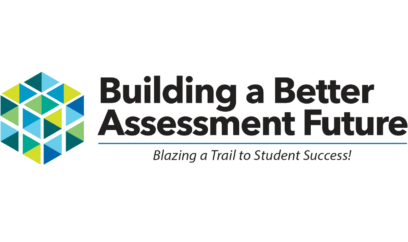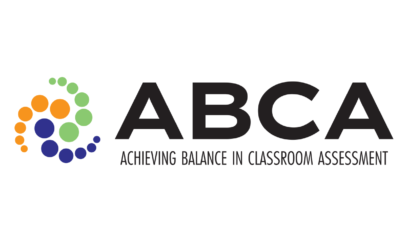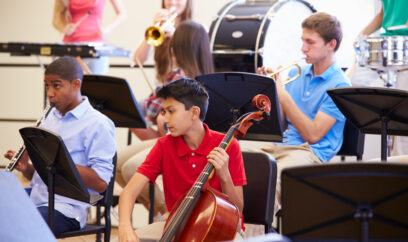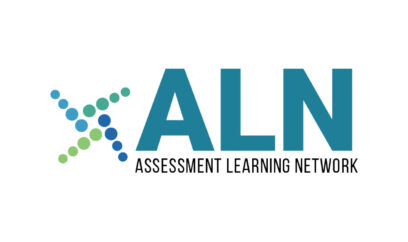
Building a Better Assessment Future 2025
August 5 - 6, 2025At the 2025 Building a Better Assessment Future conference, we are placing students at the center of our assessment systems, practices, and policies. Join us…

MAC staff and board members are involved in a variety of presentations at the 2020 Michigan School Testing Conference (MSTC).
Tuesday, February 11 – Pre-conference workshops
The Power of Performance Assessment – Kathy Dewsbury-White, Heather Vaughan-Southard, Ed Roeber, Jeff Cuff, Mary Starr, Anne Marie Nicoll-Turner, Dave Johnson
In the morning, this workshop will provide the attributes of high quality performance assessments, with general guidelines for development, and a hands-on experience scoring student work using a collaborative scoring system to demonstrate how a community of practice focused on assessment enhances teaching and learning and permits teachers to talk about assessment information they value (from assessments designed to assess DOK levels 3 and 4) in an educator evaluation plan. In the afternoon, the workshop will engage participants with examples of high-quality performance assessments in the arts, science, social studies, mathematics and ELA. Participants will obtain an insider’s view for how to create, score, and use the results of these high quality, discipline-specific examples. Participants will select two disciplines to experience more directly in the afternoon.
Assessment 101 – Ellen Vorenkamp, Jonathan Flukes, James Gullen, Joseph Martineau
This workshop introduces participants to key concepts in assessment, including all of the following:
Most of all, why should I care?
How the Formative Assessment Process Transforms Student Learning and Classroom Culture –Rashell Bowerman, Annlyn McKenzie, Jennifer McFarlane, Kim Young
High quality formative assessment practices have the potential to transform student learning. These are the practices that help all students, especially low-achieving ones, to improve their achievement. This hands-on session will introduce participants to components that support learning and begin to build positive
classroom culture.
Assessment 102 – Ellen Vorenkamp, Jonathan Flukes, James Gullen, Joseph Martineau
This workshop builds on the Assessment 101 workshop (WS 3), but is appropriate for those who did not attend that workshop and those who already have a basic understanding of assessment. This workshop is intended to help teachers, administrators, and local board members understand their roles in supporting, implementing, and using the results of assessments for learning (e.g., formative assessment practices) and assessments of learning (e.g., interim and summative assessments). This session will also define additional topics that will be helpful in promoting assessment literacy among colleagues
Wednesday, February 12
What Assessment Can and Cannot Do: All that Glitters Is Not Gold and Sometimes Chaos Can be a Good Thing – Joseph Martineau, Ellen Vorenkamp
Have you ever been skeptical that an assessment does what it is advertised to do, or would you feel uncomfortable coming to such a conclusion? This session provides definitions of different types of assessment, key characteristics of assessment, and what each type of assessment with various characteristics are good for, and what their limitations are. This interactive session will engage users in thinking about assessments they are familiar with and identifying whether their uses have been oversold, undersold, overused, and/ or underused.
Let’s Hear from the Students! – Kimberly Young, Kristy Walters-Flynn, Corunna Public Schools Middle School Students
The session will feature middle school students who will share their insights into a classroom culture that supports formative assessment practices and the impacts on their learning.
Assessment Communities of Practice: MAEIA Project Leads the Way – Heather Vaughan-Southard, Andrea Murray, Jeff Cuff
The nationally recognized Michigan Arts Education Instruction and Assessment (MAEIA) project has been designed to offer a full suite of resources and tools necessary to develop program quality, and support teacher quality, resulting in increased access and achievement in the arts for students. Using a catalogue of curriculum-embedded performance assessments arts teachers are now forming communities of practice to collaboratively score student work. Growth information from authentic, complex assessments that engage students in the creative process is defensibly reflected in educator evaluation plans.
Moving from CNA to Actionable Data – How Can You Use the Data you Already Have to Support the School Improvement Process? – Lisa Lockman, Rebecca Shankland
This session will lead participants through the process of developing a comprehensive system for looking at local and state data.
Developing Engaging Performance Assessments for Classroom Use – Ellen Vorenkamp
This session will explore the key points and important aspects of performance assessments. Participants will learn how best to develop them, the various types and when they should be used, and how they can engage students in assessment in a meaningful way.
Thursday, February 13
Student Growth – Definitions and Appropriate Uses – Joseph Martineau, Brian Lloyd
This session will provide a framework to defining student growth, identify different categories of measures of student growth, and discuss how student growth can be appropriately used by local administrators and teachers. Companion clinic session E2 will focus on the measures used in educator evaluation.
Developing Assessment Capable Learners – Ellen Vorenkamp
We need to develop Learner Agency in today’s students. A great way to accomplish this is to ensure their assessment literacy. Come learn about Developing Assessment Capable Learners!
Developing Assessment Literate Practices for Non-Tenure Teachers and their Mentors – Terri Portice
Are you looking for a way to help your new teachers and administrators become more assessment literate? This session will provide you with concrete ideas and samples about how to use your induction program time to help you build the assessment literacy skills of your new staff as well as the mentor teachers. The ideas that will be shared will provide you with concrete examples of how you can engage your non-tenure staff as well as their mentor teacher(s) in this important work. Various ideas and sample plans will be shared as to how districts can build the collaborative and interactive learning sessions utilizing high-quality materials developed by the Michigan Assessment Consortium.
Early Literacy Assessment Systems Report and Implications for MI Schools – Brandy Bugni, James Pellegrino, Adrea Truckenmiller, Eunsoo Cho
Elevating literacy rates in the state of Michigan will require a structure of supports from the system to the student level, including articulation and integration of an assessment system designed to support our curricular aims and instructional practices. The Early Literacy Assessment System report, commissioned by the MDE and coordinated by the MAC, brought together literacy, assessment, professional learning and systems expertise to make the point that an assessment system must be composed of elements that cohere and work together in terms of the intended functions and interpretive uses. This session presents recommendations and implications from the report.
Measures Used in Educator Evaluation – Steven Snead, Brian Lloyd
This session provides an overview of the choices that districts and public school academies have for the selection of the measures that determine student growth within educator evaluations, including state and local measures. School leaders are discovering that there are more choices than originally anticipated for measuring student growth, and these choices can be complicated and fraught with both intended and unintended consequences. This
session is intended to inform those choices to facilitate continuous improvement and meet the needs of the students, teachers, and administrators. Companion clinic session F2 will focus on how student growth can be determined.
Commercialization, Proliferation, and Incoherence: The Triple Relics of IASA and NCLB Preventing the Implementation of Balanced Assessment Systems – Joseph Martineau
This session will dive deeply into how commercialization of
assessment has contributed to a reduction in local capacity, how proliferation of assessment has created a backlash against an inherently meaningful part of instruction, and how incoherence of assessments have reduced the idea of an assessment system to a collection of products in the same way that a pile of bricks is not a house.
Assessment Literacy for Busy Educators – Terri Portice
This session will explore the key points and important aspect of Assessment Literacy as outlined in the James Popham book Assessment Literacy for Busy Educators. Relevant and applicable information will be shared that will enhance the literacy of all participants.
Building a Perfect Assessment System – Steven Snead, Missy Butki, Wendy Osterman
The National Panel on the Future of Assessment Practices suggests that it will take radical shifts in beliefs about learning and teaching to create comprehensive, balanced assessment systems. This session will unpack the components of such a system and share the success
stories of two districts, Lake Orion and Bloomfield Hills, in their efforts to make radical shifts in their local assessment systems.

At the 2025 Building a Better Assessment Future conference, we are placing students at the center of our assessment systems, practices, and policies. Join us…

Facilitate classroom-level, assessment-literate practice to improve student learning & achievement! Districts that implement—with fidelity—quality balanced assessment systems in every classroom show improved student learning and…

The Assessment Learning Network (ALN) kicks off the 2025-26 season with an in-person session that includes learning, networking, and a luncheon. Art is a…

Note: to register for a Season Pass (and save money!), click the button at right. To register for individual sessions, click the session title in…